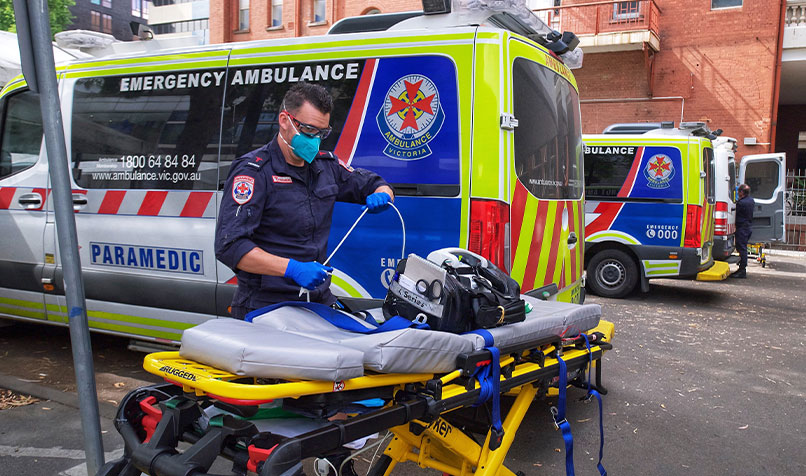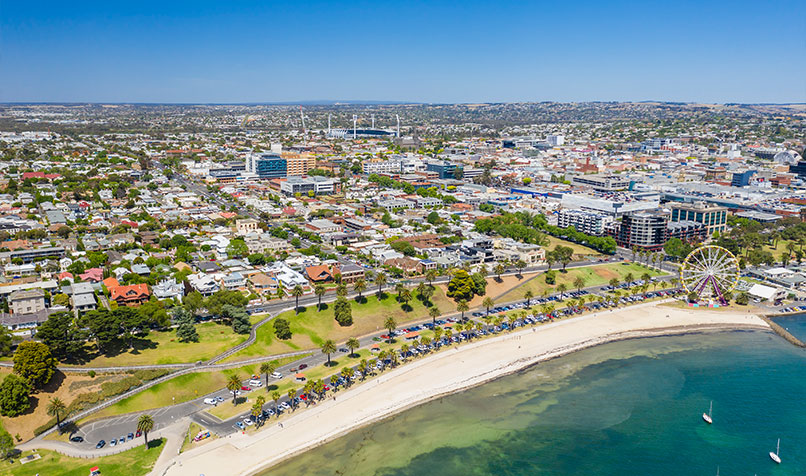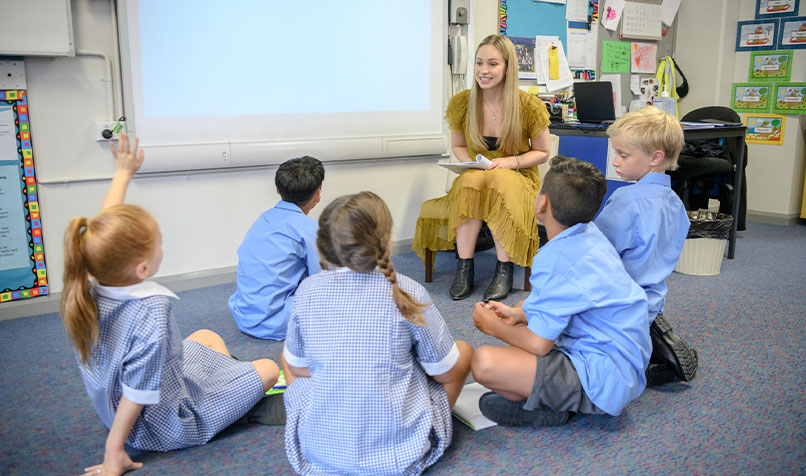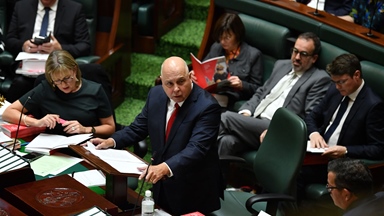Loading component...
At a glance
Treasurer Tim Pallas’ eighth budget, delivered on Tuesday, forecasts that the state’s finances will return to a surplus within four years, driven by economic growth and lower spending as the pandemic eases and an increase in state revenues from $81 billion this financial year to $91 billion by 2025/6.
The budget forecasts a $21 billion deficit in 2021/22, $7.9 billion next year and lower deficits in following years until a surplus of $650 million is achieved in 2025-26.
“We are delivering a path back to surplus without jeopardising our economic recovery or cutting the services on which Victorians rely,” says Pallas.
“Our budget will recover by $18 billion in just four years.”
The budget time frame is four years, which coincides with the next term of the Andrews’ Government, if it is re-elected later this year, and also with the 2026 Commonwealth Games, investment in which is a key plank to the regional development strategy.
One of the centrepieces is a $10 billion investment fund called the Victorian Future Fund, seeded with the proceeds of the VicRoads Modernisation Joint Venture, which will be used to reduce debt incurred through health and economic support measures taken during the pandemic.
Winners from the budget include people using health services, job seekers, commuters, teachers and students, and the Victorian regions.
As telegraphed well in advance, there is a Power Saving Bonus to lower household energy costs, with households receiving a $250 payment if they visit the Victorian Energy Compare website and submit an application.
What’s in the budget for small business

Contrary to CPA Australia’s pre-budget submission to the Victorian Government, which recommended decreasing the payroll tax burden on small business, the government made no changes to the payroll tax rate or threshold, with Victorian employers expected to pay $6.8 billion in payroll tax next financial year.
CPA Australia’s call for the budget to include measures to build the capacity of small business through advice has been heard, however, with $5 million allocated to a Specialist Advice Pathways program under the Minister of Innovation, Medical Research and the Digital Economy, Jaala Pulford.
At CPA Australia, Senior Manager – Business and Investment Policy Gavan Ord welcomes the initiative, particularly the subsidised access to accounting, bookkeeping, tax and legal advice.
“The Specialist Advice Pathways program will help thousands of Victorian small businesses gain access to subsidised business advice from their adviser of choice,” Ord says.
“For some time, we have been calling on state and federal governments to provide incentives to businesses to seek professional advice from their adviser of choice.
“Our research and engagement with members show that businesses in trouble become less likely to seek advice, when they need it most, and that a major reason for this is cost.”
Ord notes, however, that the budget includes “fewer direct initiatives for small business than usual.”
For growing businesses, the budget earmarked $40 million for grants to support growing businesses through the Victorian Industry Investment Fund and will open a new trade office in Paris and commit another $40 million to attract more global companies to Victoria.
Losers from the budget include the Crown Casino, with measures to bring taxes on winning from poker machines in line with other venues, reaping an additional $30 million a year.
Major focus on health in Victoria’s budget

The budget’s big focus is on health, with initiatives to fund more healthcare workers and improved hospitals.
“This is a budget that puts more than $12 billion into the hospitals and healthcare our state needs and the Victorian workers who will deliver it,” says Pallas.
Of this $12 billion, $2.9 billion is for new health infrastructure, including $900 million for a new hospital at Melton in Melbourne’s west.
Health initiatives include a $1.5 billion COVID Catch-Up Plan for elective surgery, with a goal of 240,000 procedures annually by 2024, with Frankston Private Hospital converted to a public surgery centre with capacity for 9000 surgeries a year.
The state will train and hire 7000 new healthcare workers, including 5000 nurses of whom 2000 will come from a global recruiting drive.
A further $124 million will be spent on putting more paramedics on the road, and $333 million will be invested to add 400 new staff to increase Triple Zero call taking and dispatch capacity.
Infrastructure goes regional
On the regional theme, the budget boosts the Regional Health Infrastructure Fund by $300 million, bringing the fund to $790 million since its inception in 2016, during which time it has financed 480 projects.
Commuters to the regions and the manufacturing industry are winners with the budget committing $250 million for 12 more VLocity trains for regional Victoria, to be built and maintained in the state.
The 2026 Commonwealth Games will be branded as the Regional Victoria Games, with hubs in Ballarat, Bendigo, Geelong and Gippsland, and the budget provides $2.6 billion for the event as part of more than $5.7 billion in regional initiatives.
The additional accommodation created for the Games will go into the pool of social housing afterward, alongside a Big Housing Build program which has been allocated a further $1 billion in low-interest loans and government guarantees to create up to 6000 more homes.
Infrastructure goes regional

Education is another focus, and the budget includes $581 million in funding for an additional 13 new schools with an allocation of $1.8 billion.
Also in education, $130 million has been allocated for literacy and numeracy support, and $280 million for a new vocational pathway to give students more choice as part of the VCE.
There is also $779 million to recruit around 1900 more teachers.
Education

Other budget initiatives
Other spending initiatives are in law and order, with $342 million for 500 additional police officers and 50 protective services officers.
$241 million is allocated to support victim survivors, including two new family violence refuges and six new crisis accommodation properties, while $15 million is to fund legal services and health programs for the LGBTIQ community.
In recognition of the hit taken by the creative industries during the pandemic, the budget includes $245 million to fund affordable creative spaces for artists, and for a Go West Festivals Fund for the arts industry in Melbourne’s west.

